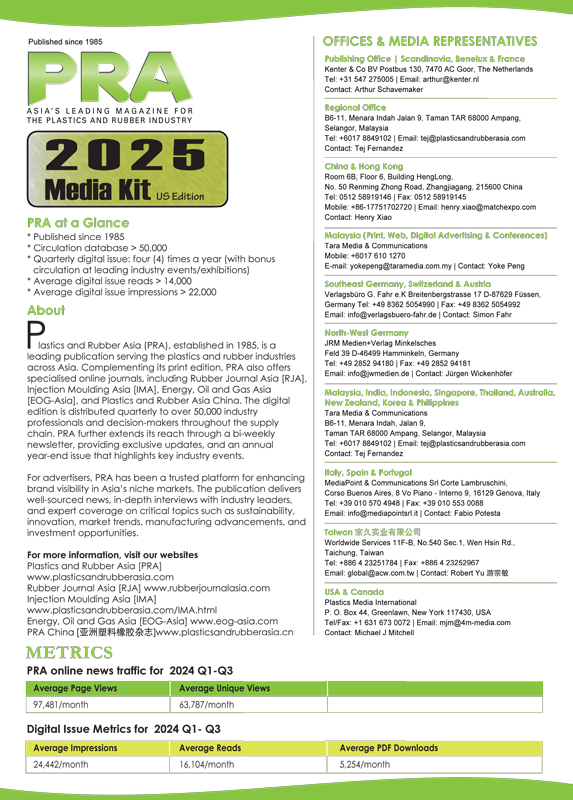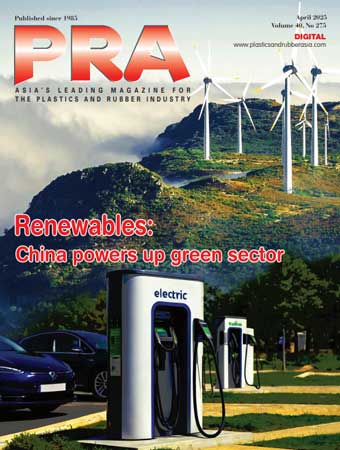Automotive industry: Gearing up for sustainability
Europe pushes for minimum 20% recycled plastics in new vehicles
The European Parliament recently adopted its proposals on new EU rules to cover the entire vehicle lifecycle, from design to final end-of-life treatment.
Under a phased approach, plastic used in each new vehicle type will have to contain a minimum of 20% recycled plastic, within six years of the rules’ entry into force, contrary to the earlier move for 25%.
However, to ensure the necessary long-term perspective for the industry and unlock investment, manufacturers have to meet a target of at least 25% within ten years, if enough recycled plastic is available at non-excessive prices. The Commission says it will introduce targets for recycled steel and aluminium and its alloys, following a feasibility study.
The regulation will apply to cars and vans one year after its entry into force (five years for buses, heavy-duty vehicles, trailers, motorcycles, quads, mopeds and minicars).
Manufacturers would also have extended producer responsibility, covering the cost of the collection and treatment of their vehicles that have reached the end-of-life stage. Specific requirements would apply for the removal of parts and components, of liquids, and of components containing gases, refrigerants, and hazardous substances before shredding.
As well, used vehicles should only be exported if they are not considered end-of-life vehicles, the text says.
Meanwhile, Brussels-based advocate for recycling in Europe EuRIC says that while progress has been made it warns that low targets, loopholes, and legal uncertainties risk holding back the investments and market confidence needed to scale Europe’s circular economy in practice.
“These low targets reward neither frontrunners who have already invested in circular solutions nor recyclers facing a 30% recycling obligation for ELV plastics without a guaranteed market,” said Maria Vera Duran, EuRIC’s Senior Technical Manager.
It also added that the lack of a mirror clause for imports under fair conditions further threatens European recyclers. Moreover, the review clause referencing “excessive prices” adds policy uncertainty, discouraging necessary investments, it furthered.
BlueRebirth to undertake vehicle recycling in Japan
In other news, Japan’s Denso Corporation, Toray Industries, Nomura Research Institute, Honda Motor Co, Matec Inc and Rever Corporation have are among dozens of firms that have set up the BlueRebirth Council to realise a circular economy in the automotive sector.
Its objective is to build a manufacturing/ recycling integrated value chain to realise car-to-car recycling, from automated precision dismantling to efficiently disassemble end-of-life vehicles (ELVs) for materials recycling.
According to the council, the automotive recycling industry faces challenges in promoting automation, digitalisation and in addressing worker shortages by improving workplace environments. By 2035, the council says it aims to change the automotive recycling industry into a “recycled materials manufacturing industry.”
BlueRebirth says it also will make recommendations to relevant companies and organisations and engage in discussions and research.
Fiat launches vehicle made from recycled beverage cartons
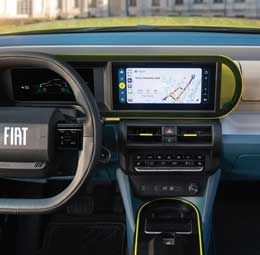
Meanwhile, beverage cartons have found new life in the latest model of Fiat Grande Panda. Launched by Italian car maker Fiat, it has become the first car manufacturer to incorporate recycled materials from used beverage cartons in a vehicle.
Switzerland-based Tetra Pak’s polyAl material, a combination of polymers and aluminium components recovered during the recycling of beverage cartons, is used inside the plastics of the car’s interior, including the central console, dashboard, interior front and rear door panels.
The polyAl-based compound is called Lapolen Ecotek and produced by Italian compounder Lapo Compound that worked with Fiat to ensure this material was competitive in quality and price. The placement of the material in such visible parts of the interior, rather than in hidden areas, clearly demonstrates the material’s aesthetic potential. Fiat chose the material for its shimmering effect, created by the aluminium content of the recycled material, and because Lapo Compound was able to precisely match the specific shade of blue required.
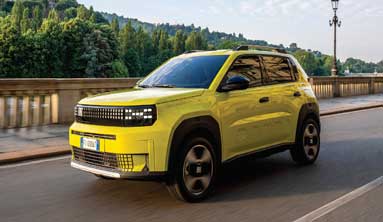
Fiat’s use of the polyAl material in the Fiat Grande Panda showcases that this recycled material can now be utilised on a large scale by the automotive industry. The car is already on the market in most European countries, and will be available outside Europe by the end of the year.
In addition to its automotive applications, Lapo Compound is also conducting trials for other uses of the polyAl-based compound Lapolen Ecotek, including outdoor furniture and factory floors.
Sustainable TPEs for running boards
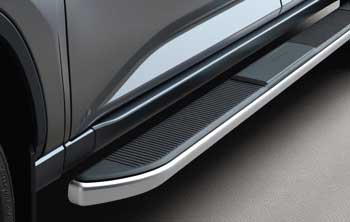
In line with the automotive industry’s move towards sustainability, German company Kraiburg TPE’s Thermolast R RC/UV/AP series contains 15-40% recycled content and meets specific recycling standards.
While often seen as a secondary component, side steps in vehicles improve vehicle accessibility, enhance functionality, and contribute to a unified exterior design.
Running boards improve access, safety, and comfort, especially for high-clearance vehicles like SUVs and trucks, as well as reduce seat wear by easing entry and exit in a vehicle.
Kraiburg adds that its latest recycledcontent TPE series delivers highperformance,, offers weather resistance, UV stability, and impact strength, making it ideal for enduring harsh outdoor conditions while maintaining long-term durability and surface quality.
The compounds also offer excellent adhesion to PP, low density for weight reduction, and temperature stability up to 90°C.
These features, along with proven performance in the two-year Florida weathering test with a GS rating of ≥ 4, make the series highly resilient under harsh outdoor conditions.
With a hardness range of 50 to 90 Shore A, it also covers various design needs, from flexible to more rigid structures.
Available in black colour, the series offers versatility and visual consistency, ensuring that car running boards maintain a sleek, modern appearance while meeting design requirements.
The series is also suitable for a wide range of exterior automotive parts, including cowl gaskets, underbody components, and window encapsulations.
Subscribe to Get the Latest Updates from IMA Please click here
©2025 Injection Moulding Asia. All rights reserved.
